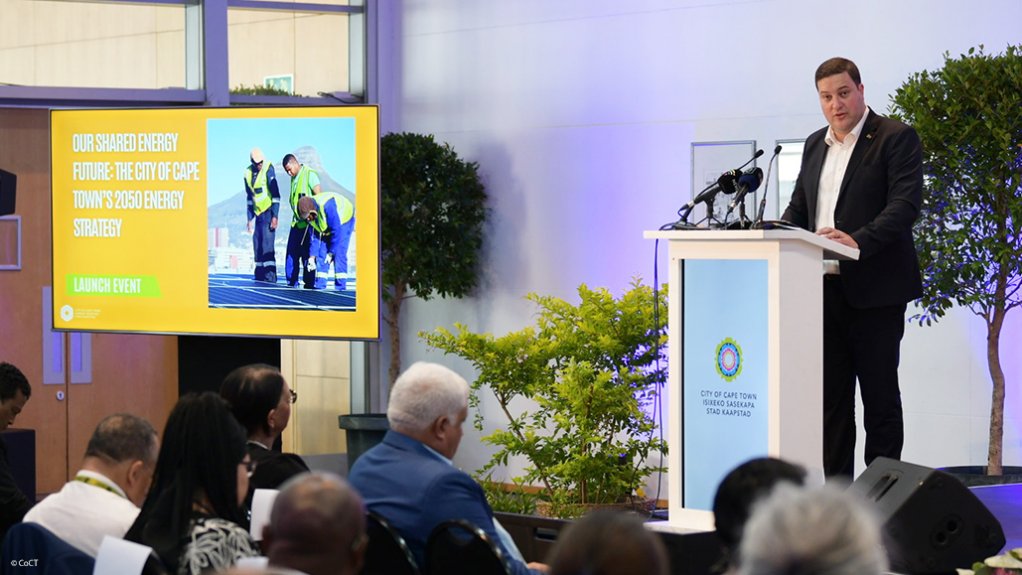The City of Cape Town is now enabling households to earn cash for the power generated from their solar photovoltaic generation systems.
Mayor Geordin Hill-Lewis says a first round of applications will close on March 8 for households to earn cash from selling their excess solar power to the city, beyond the existing automatic crediting of municipal bills.
Hill-Lewis was speaking at the launch of the city’s Energy Strategy.
“Today Cape Town becomes the first city with a formally adopted Energy Strategy, which clearly outlines how we plan to end loadshedding, as the most important action we can take for job-creating economic growth,” he noted.
“In the short term, we are planning for four stages of loadshedding protection by 2026, as we make the great transition from unreliable, costly and fossil fuel-based Eskom energy, to an increasingly decentralised supply of reliable, cost-effective, carbon neutral energy from a diverse range of suppliers.”
“In Cape Town, the most exciting part is that residents and businesses are going to play a crucial role in helping us to end loadshedding by working together as Team Cape Town,” said Hill-Lewis.
“We will buy as much solar power as households and businesses can sell to us under the Cash for Power programme.
“Households can also volunteer for our Power Heroes programme to remotely switch off geysers at peak times in a bid to avoid a full stage of loadshedding.
“And, in another first, we are enabling businesses to sell power to each other and wheel it across the grid, which will add 350 MW of decentralised power to Cape Town’s grid in time.”
Short-term loadshedding mitigation up to 2026 will be achieved largely through a mix of the Steenbras Hydro Plant (1 to 2 stages); 500 MW of dispatchable energy (up to four stages from 06:00 – 22:00 daily, where possible); and demand management programmes, such as the Power Heroes campaign and Large Power Users curtailment.
Overall, Cape Town is planning to add up to one gigawatt of independent power supply to end loadshedding in the city over time, with the first 650 MW of this to happen within the next five years.
How to Apply for Cash for Power
The City of Cape Town says it is important to note that customers who wish to only offset their electricity and rates accounts should not apply for the Cash for Power programme, as they will automatically be compensated upon authorisation of their grid-tied, small-scale embedded generation (SSEG) system.
If customers are interested to move beyond this, they can register and receive cash for their power – where any remaining credit will accumulate until it reaches a certain amount, at which time the city will pay out the money.
Cash for Power applications are open for all residential customers on the home-user tariff with an approved grid-tied SSEG system and bi-directional AMI meter to feed power back into the grid.
Cash for Power applications for this round should be submitted to hoosain.essop@capetown.gov.za.
Any submissions received after this date will be kept for the next round, with the date to be announced after the first round closes.
Successful Cash for Power sellers will contract with the city for a period of three years after appointment.
EMAIL THIS ARTICLE SAVE THIS ARTICLE ARTICLE ENQUIRY
To subscribe email subscriptions@creamermedia.co.za or click here
To advertise email advertising@creamermedia.co.za or click here











